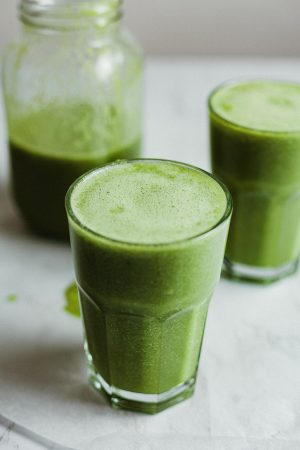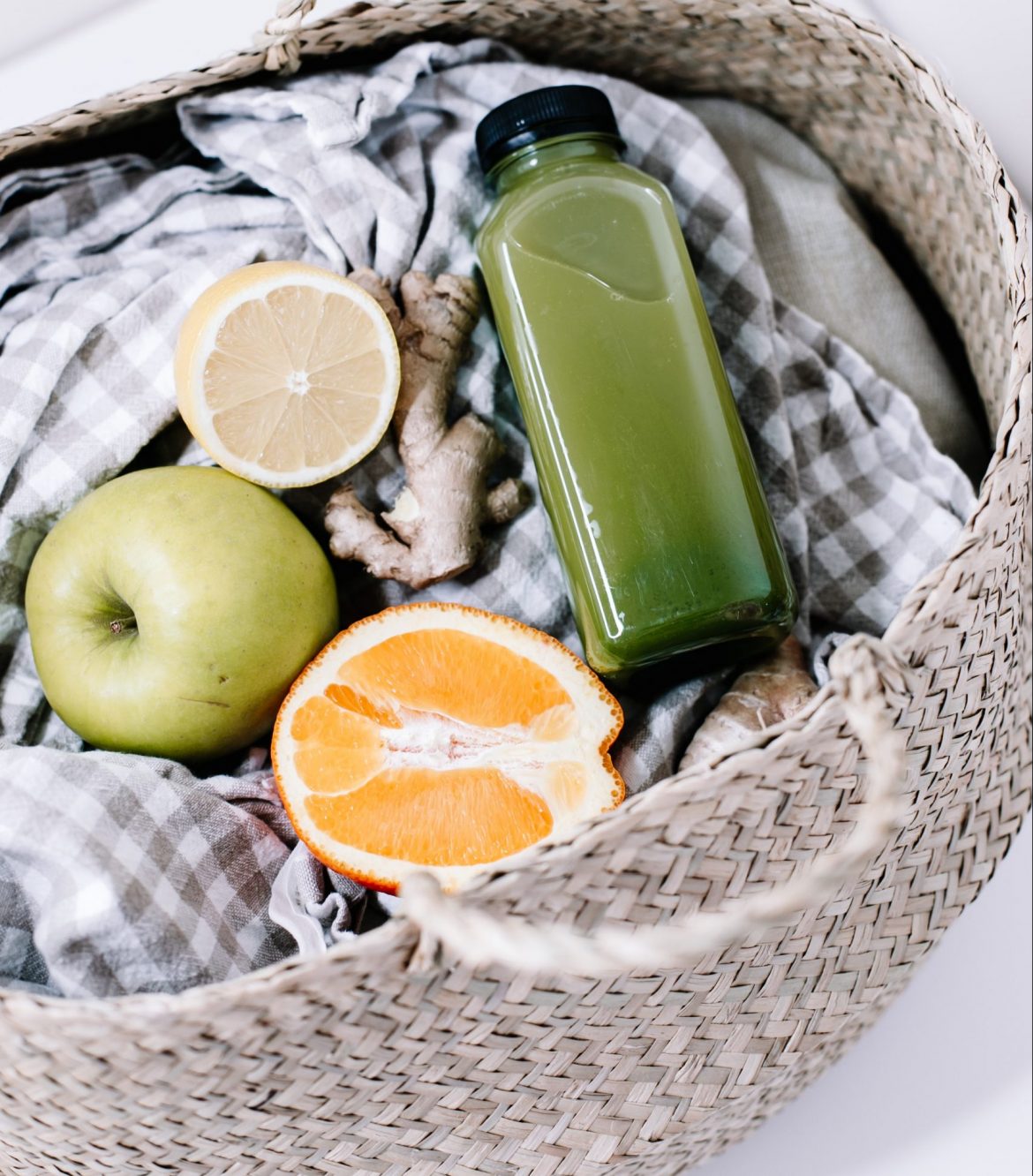Are we still juicing? At first it was just dedicated juice bars, but as the trend of juicing for better health bloomed you can now grab your favourite concoction of fruit and vegetables at just about every coffee shop and restaurant! We’re all for healthy alternatives, but when it goes further what are the ups and downs?
Whichever way you peel it, fruit and veg are at the core of good health. You need to have at least five portions of fresh seasonal fruit and vegetables per day, say health organisations such as the Cancer Association of South Africa (Cansa) and the Heart and Stroke Foundation South Africa – a portion being one small apple, eight large strawberries or a cup of chopped veg. And variety, they all agree, is as important as quantity – no one fruit or vegetable provides all the nutrients we need. The trick is to load up on lots of different types and colours.
Juiced Up
Dissension creeps in, however, when it comes to how best to consume fruit and veg. There’s a growing movement, headed mainly by alternative-health proponents, that advocates drinking, rather than eating, your five a day. Eudisha Balikaran Bhimsan, manager of Namasté Wellness Retreat, says that juicing allows you to consume much larger amounts of vitamins, minerals, antioxidants, enzymes and other nutrients than you would by eating the fruit or vegetables.
‘When you eat them, the bulky fibre fills you up.’ It’s difficult to eat more than two fruits in a sitting, she reasons, but easy to drink the juice of six in a glass. What is more, she says, your body absorbs the nutrients better, without taxing your digestive system.
But many dieticians disagree – they recommend eating, not drinking, your fruit and veg. ‘That way, you’ll get all the benefits of the dietary fibre,’ says dietitian Berna Harmse, the former president of the Association for Dietetics in South Africa.
The benefits include better appetite control (you feel fuller quicker and for longer), lowered cholesterol and blood pressure, improved insulin sensitivity, fewer digestive problems, and a reduced risk of obesity and cardiovascular diseases.‘Juicing can be a useful way of getting in more nutrients if you have a busy schedule,’ she says. ‘But eating the whole fruit or veg provides more fibre and health benefits.’
Fasting Forward
The argument becomes really juicy when it concerns fasting. A number of people, such as Isilda da Costa, 26, a certified David Wolfe (superfoods guru and author) raw nutritionist, credit raw juice ‘detoxes’ with relieving or even curing specific ills. Isilda, who studied auditing at the University of Pretoria before opening a health shop in Swaziland, was diagnosed with lupus at 15. ‘Before my first detox retreat in 2011, I’d lie on the floor in agony,’ she says. ‘After six days on fresh organic juices and clear veg broths, I felt so amazing that I stopped most of my meds.’
Mainstream dieticians and medical experts consider such accounts as nothing more than anecdotal evidence. ‘Research has not proven that alternative treatments successfully treat lupus or other problems,’ notes womenshealth.gov, a project of the US Department of Health and Human Services. ‘And more importantly, research has not been done to show if these therapies could be harmful.’
The Big Squeeze
Fasting fans list five main benefits … and dieticians give their responses. Decide for yourself which side of the fence your fruit falls:
1. It eliminates toxins
FOR – Today we’re exposed to pollution, pesticides and the likes of high-fructose corn syrup snuck into so many of our food products, says Midi Fairgrieve, founder of Detox International. ‘And juice fasting gives maximum detox results’ in remedy of this.
AGAINST – Our organs that specialise in elimination – kidneys, liver, gastrointestinal tract, lungs and skin – are quite capable of detoxing without special diets, says Berna. While we’re exposed to free radicals from pollution, our bodies also produce free radicals, adds dietitian Suna Kassier of the department of Dietetics and Human Nutrition at UKZN. ‘In excess, free radicals cause cell damage, but they can be neutralised by simply adding antioxidants in the form of fresh veg and fruit to a balanced eating plan.’
2. It rests the digestive system
FOR – As a result of today’s poor diets, lack of exercise and stress, our bodies have to work extra hard to get rid of waste and toxins, says Eudisha. ‘Juice fasts give your digestive system a break.’
AGAINST – Our digestive systems don’t need a break, says Suna. Even patients who have parts of their gut removed are urged to eat normally as soon as possible. ‘It’s one of the best ways to restore gut function and bowel integrity,’ she says.
3. It neutralises acid build-up
FOR – When we have too much acidity in our bodies, it clings to fat cells, explains Eudisha. Acidity-forming foods include wheat, meat, cheese, sugar and alcohol. Most raw vegetables and fruit are alkalising, so juicing alkalises your body fast.
AGAINST – Stomachs are acidic to eliminate harmful bacteria and help with digestion and absorption, says Suna. ‘The body has checks and balances to maintain an optimal pH.’
4. It helps you shed weight
FOR – Eating processed foods high in sugar and fat can affect your metabolic rate, says Midi. Removing them increases the rate, and excess weight is easier to shift.
AGAINST – Juice fasting is a crash diet lacking protein and fat, says Suna. Your body slows its metabolic rate due to loss of active tissue (muscle), so any weight lost is rapidly regained.
5. It solves health problems
FOR – Juice fasting helps the body heal itself in a natural way, says Midi.
AGAINST – Along with healthy properties, fruit juice has as much sugar as cooldrinks (albeit one occurs naturally and the other is additionally added to other ingredients) and is absorbed rapidly. It tends to upset blood sugar, potassium and sodium levels, says Berna. ‘Having fruit or veggie juice is much better than skipping a meal or eating takeaways,’ she states. ‘But there’s no proven benefit to do a juice fast.’
Green Power
As part of a healthy and balanced diet, fresh juice is a good addition – especially if you struggle to get in your required daily greens and essential vitamins. If you are juicing, we recommend staying as green as possible and keeping a good amount of vegetables present so the overall sugar content stays lower. Try this healthy juice recipe for a delicious boost.
INGREDIENTS
1C kale, chopped
1 cucumber, cut into chunks
1 granny smith apple, cored and cut into chunks
1C seedless green grapes
1C ice water
METHOD
1. Pop everything in a blender and blend until smooth.
2. Drink immediately, or keep in the fridge, but for no longer than two days. (Bacteria can form rapidly in fresh juice.)
Want more ideas? Find more juice recipes here!
ALSO SEE 5 TIPS FOR EATING SMART

